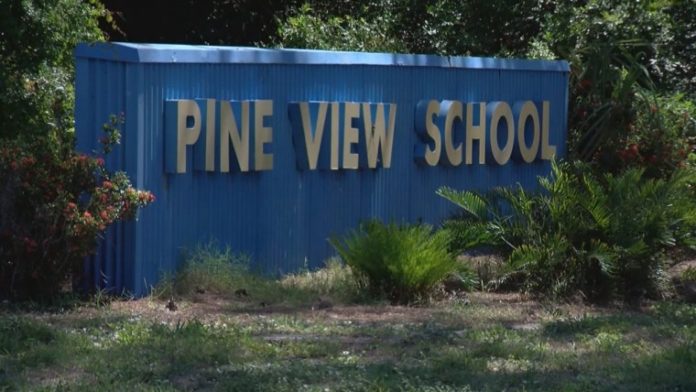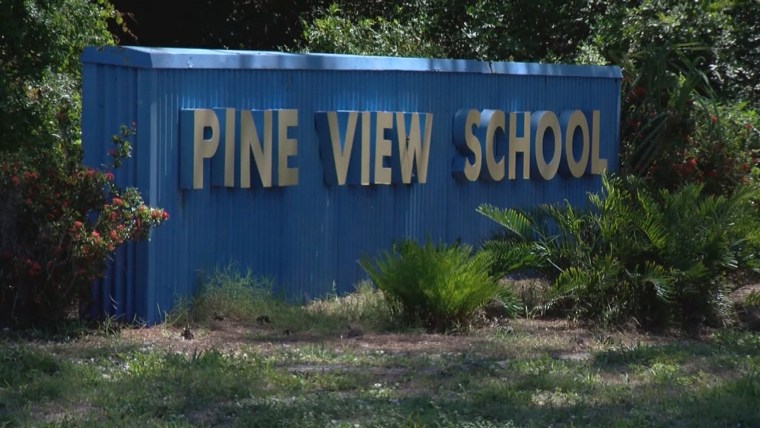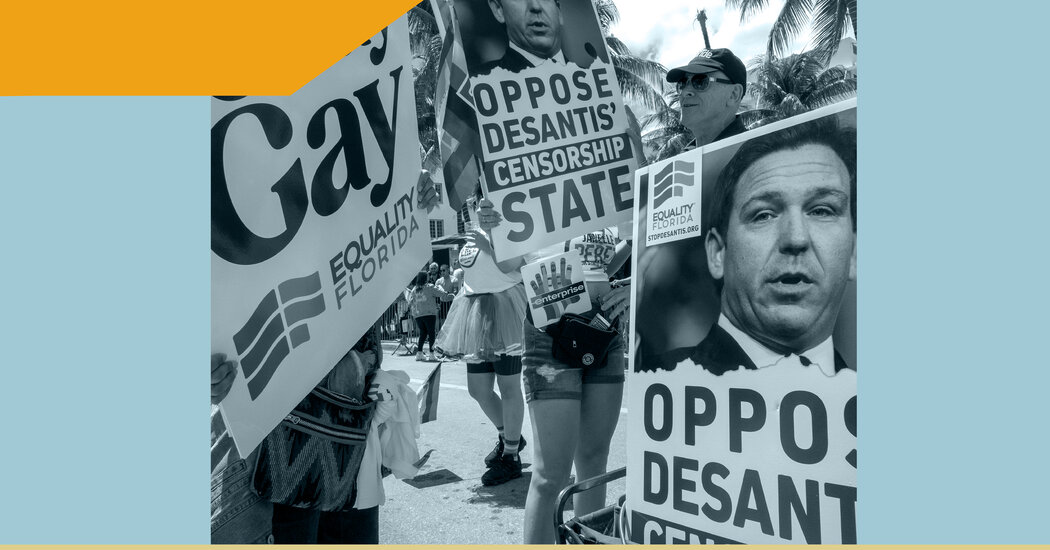Florida high school senior Zander Moricz was called into his principal’s office last week. As class president his whole high school career — and his school’s first openly LGBTQ student to hold the title — this was a fairly routine request. But once he entered the administrator’s office, he said, he immediately knew “this wasn’t a typical meeting.”
His principal — Stephen Covert of Pine View School in Osprey, Florida, roughly 70 miles south of Tampa — warned Moricz that if his graduation speech referenced his LGBTQ activism, school officials would cut off his microphone, end his speech and halt the ceremony, Moricz alleged.
“He said that he just ‘wanted families to have a good day’ and that if I was to discuss who I am and the fight to be who I am, that would ‘sour the celebration,’” Moricz, 18, recalled. “It was incredibly dehumanizing.”
Covert did not reply to NBC News’ questions concerning his alleged warning to Moricz. However, he released a statement through his employer, Sarasota County Schools, saying he and other school officials “champion the uniqueness of every single student on their personal and educational journey.”
In a statement, Sarasota County Schools confirmed Covert and Moricz’s meeting, adding that graduation speeches are routinely reviewed to ensure they are “appropriate to the tone of the ceremony.”
“Out of respect for all those attending the graduation, students are reminded that a graduation should not be a platform for personal political statements, especially those likely to disrupt the ceremony,” the district said. “Should a student vary from this expectation during the graduation, it may be necessary to take appropriate action.”
In his principal’s defense, Moricz added that he was “astonished” because Covert’s demand “did not reflect his previous actions” in their four years of working together. Moricz said he “strongly believes” the request was in response to a newly enacted state law, which critics have dubbed the “Don’t Say Gay” law.
Officially titled the Parental Rights in Education law, the legislation bans teaching about sexual orientation or gender identity “in kindergarten through grade 3 or in a manner that is not age appropriate or developmentally appropriate for students in accordance with state standards.” Florida Gov. Ron DeSantis signed the bill into law in late March.
Proponents of the measure have contended that it gives parents more discretion over what their children learn in school and say LGBTQ issues are “not age appropriate” for young students.
But critics have argued that the law could stifle teachers and students from talking about their identities or their lesbian, gay, bisexual, transgender and queer family members.
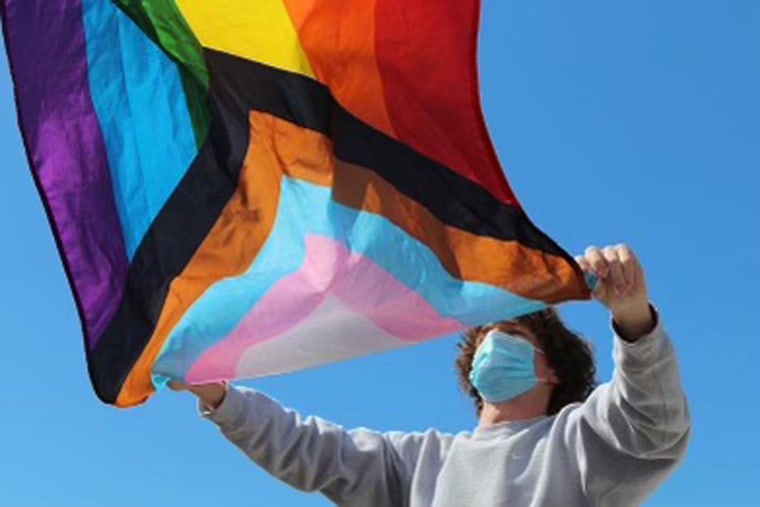
During a statewide student walkout in March, Moricz led Sarasota County’s largest protest in opposition to the legislation. In the days leading up to the rally, Moricz said, school officials ripped down posters and told him to shut down the protest. In an email to NBC News, a school official said she does not have “any insights about the alleged removal of posters before the student protest.”
Later that month, Moricz and a group of over a dozen students, parents, educators and advocates filed a federal lawsuit against DeSantis and the state’s Board of Education, alleging the law would “stigmatize, silence, and erase LGBTQ people in Florida’s public schools.”
“The reason something like the ‘Don’t Say Gay’ law seems like nothing but is actually everything is that when you cannot talk about or share who you are, there is a constant subconscious affirmation that you are not valid, that you should not exist,” Moricz said.
The fight against the legislation is personal for Moricz, he added. Through his school’s support system, Moricz said he became confident about his sexuality. Before coming out to his family, Moricz said, he came out to his peers and teachers at school during his freshman year.
“I would not be fighting for these things, I would not be standing up for these causes in the way that I am, if I had not been able to do so at school first,” he said. “I think in the same way that school is where you learn so many important things about life, you also learn about yourself, and that looks different for LGBTQ kids.”
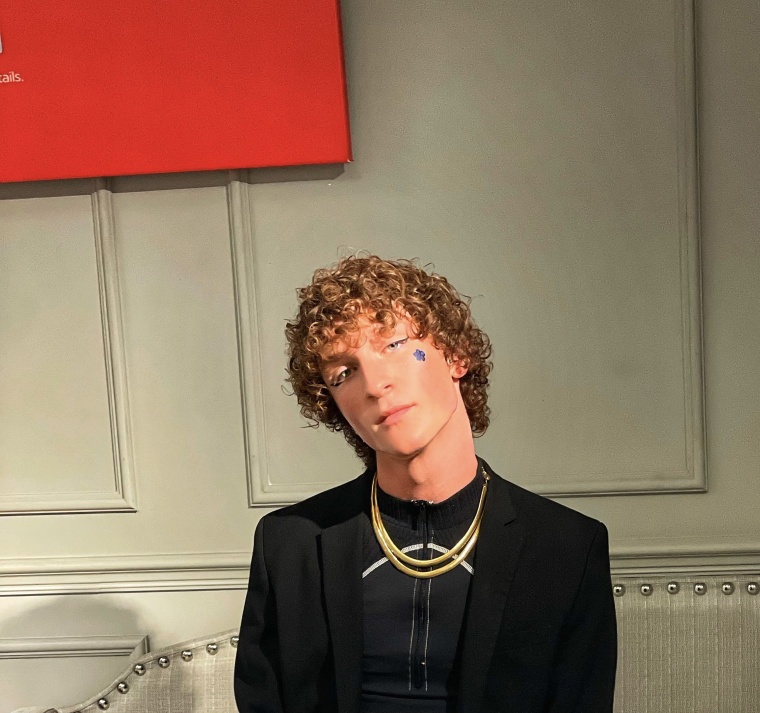
But Moricz’s activism has not come without a price: Since he led his school’s protest in March, he said, he has been harassed online and has received in-person and online death threats from strangers. He even said strangers have entered his parents’ offices, unannounced, looking for him.
“I do not feel safe operating as an individual on a day-to-day basis in my county,” he said. “Pineview as a student community has been incredible for me. Sarasota as a community has been something I’ve had to endure.”
While the Parental Rights in Education law does not take effect until July 1, some teachers and students, like Moricz, have said they have already started to feel its impact.
Since the legislation was introduced in the state House of Representatives in January, LGBTQ teachers in Florida have told NBC News that they fear talking about their families or LGBTQ issues more broadly. Several quit the profession in response to the law’s enactment.
Last week, a Florida middle school teacher in Lee County, which is roughly 40 miles north of Naples, claimed she was fired in March for discussing sexuality with her students. The Lee County School District said Scott was fired because she “did not follow the state mandated curriculum.”
And just this week, school officials at Lyman High School in Longwood, Florida, said yearbooks would not be distributed until photos of students protesting the state’s LGBTQ legislation were covered with stickers. The district’s school board overruled the decision Tuesday, following outcry from students and parents.
Despite some pleas from parents and his fellow students to “not destroy graduation,” Moricz said he plans to include his identity and activism in his graduation speech, which he is set to give at the end of the month.
“The goal of this threat is for my principal to make me pick between defending my First Amendment rights and ensuring that my friends receive the celebration they deserve,” Moricz said. “I will not pick between those two things, and both will be achieved on May 22.”
LGBTQ advocates have applauded Moricz’s efforts and denounced Covert’s warning.
“This blatant censorship is unacceptable and entirely foreseeable,” Jon Harris Maurer, a public policy director at Equality Florida, an advocacy group also named in Moricz’s lawsuit, said in a statement. “It epitomizes how the law’s vague and ambiguous language is erasing LGBTQ students, families, and history from kindergarten through 12th grade, without limits.”
Moricz will head to Harvard University in the fall, where he plans to learn more about public policy. He said he hopes students who remain behind, attending Florida’s public schools, will “prove me right in my prediction.”
“Attempting to silence the LGBTQ community will be a hilarious and disastrous flop,” Moricz said.

